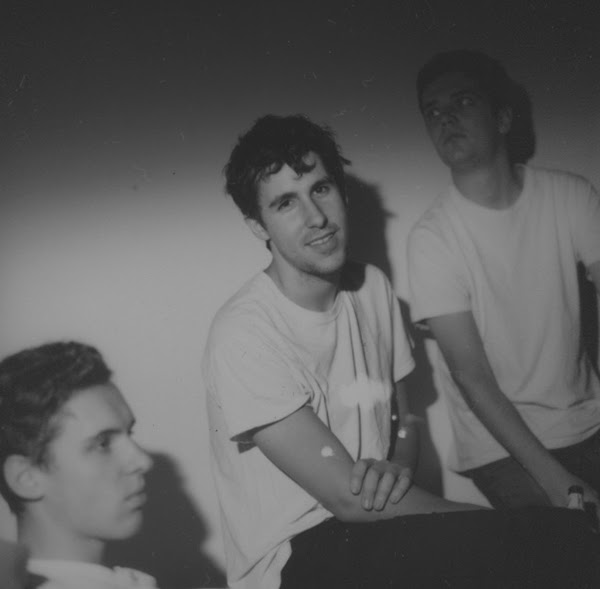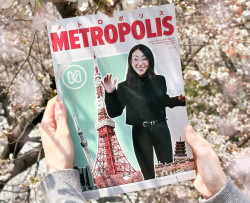
Originally published on metropolis.co.jp on June 2014

Badbadnotgood, or BBNG as their fans called them, are tearing up the underground with jazz-tinged remixes of rap joints by the likes of Odd Future. Matthew Tavares, Alexander Sowinski and Chester Hansen met in 2010 at Humber College in Toronto, and found a following after their cover of a Tyler, The Creator tune was helped to go viral by the man himself. Metropolis tracked down BBNG ahead of a Japan debut that should bring out music tribes from bass music aficionados to improv freaks and hip-hop headz.
What brought you three together?
We met when we were all attending a music school, in a jazz program. We bonded over our love of hip-hop and jazz, and playing and creating music in general. In jazz school sometimes it can seem like the school is its own bubble. I think part of the reason we started playing together is because we wanted to try to think outside of that bubble.
What were your first impressions of each other?
I think we all thought the others were great musicians and cool dudes!
How did your first session go—what came out of it?
In our first jam session ever, we were all still heavily involved in school, working on jazz standards and being comfortable with the language of jazz. It was a long time ago, but as far as I can remember we played “Solar” and “Milestones.” Maybe “Footprints” as well. Playing that stuff was neat, it’s always a great experience playing with new people and the three of us connected quite well. I think we all were very open to experimentation and trying new things, even in the constraints of jazz standards. Towards the end we tried messing around with some Tyler, The Creator beats and I think that’s when we had the most fun. Nothing really concrete came out of it except a desire to jam again!
Why “Badbadnotgood”?
Matty and his friends were working on a TV show named Badbadnotgood before we all met. Unfortunately, the show never got off the ground but we thought it was a cool name for a band so we ended up using it!
Tell us about the making of two songs on your new album III.
“Differently, Still” is our homage to classic jazz groups such as the Bill Evans Trio. We’re all massive fans of Bill Evans and his trio with Scott LaFaro and Paul Motian. The way the three of them interact and play together is a constant inspiration to us. On this song we really tried to capture the vibe and feeling of an old jazz ballad, we lit some candles, turned the lights down and recorded it very close together in the room with only one mic on each instrument.
“CS60” is possibly the opposite of “Differently, Still.” It turned into the most epic song on the album through a bunch of changes. We weren’t actually super excited about the song when we first recorded it, but then our friend Tommy came in and recorded 20 layers of cello on it, and we added a bunch of synths and textures and put a crazy 808 sub on the choruses. We think it’s a neat song and very fun to play live.
How did it evolve from your first two albums?
III has probably evolved in every way from our previous material. When we recorded BBNG1, we weren’t really a serious band whatsoever. We hadn’t even played any shows! We just had fun playing together and a friend of ours had some free studio time so we just went and recorded a bunch of hip-hop covers of songs that we liked. We learned everything on the spot, there was barely any rehearsal. We didn’t have the time to really prepare any arrangements or think about how we wanted to record it, it was just set up and go. BBNG2 was slightly more prepared, we actually thought about the material we wanted to record, and had time to come up with arrangements of the covers, and write some original stuff too. We were more comfortable playing together, but still had only played a handful of shows until that point. Although we had ample time to rehearse beforehand, we only had a few hours of studio time again, and ran into some technical difficulties that posed a lot of problems in the mixing stage. With our new album, there was a two-year gap. In that time a lot happened that changed us as a band. We started writing material later on in 2012 that would eventually end up on III. At the same time, we had to relocate our rehearsal space/studio to a new location. For most of the early stages of the band, we had rehearsed in Alex’s dad’s basement, but it was an apartment building and we had noise complaints. We moved into a new studio with our friend Frank Dukes, and spent months painting and renovating. Dukes is a hip-hop producer and has tons of analog gear, and having access to all that stuff and learning from him changed the way we think about production in a major way. Also throughout this time, we were getting into all kinds of old psych and soul records and being influenced by those sounds to write new material. For this record, we also had way more time in the studio to try and experiment and get the sounds that we wanted. We were lucky enough to be able to record the whole thing to analog tape, and use a whole bunch of great old microphones and gear, which really impacted the way we played and the way the album sounds. We feel like III is our first real album, we’re very proud of it and so excited that people are enjoying it!
Where does your music sit in the spectrum of popular music tastes? What kind of fans are you reaching and what might they be getting out of your music?
Our music is a combination of all the music we listen to and are influenced by. We hope people are into what we’re doing and we continue to strive to make honest, creative music.
In a larger sense, why does music exist?
Difficult question! Music exists for different people for different reasons, we like to think it brings happiness, fulfillment, and meaning to people’s lives.
June 26, Unit.







